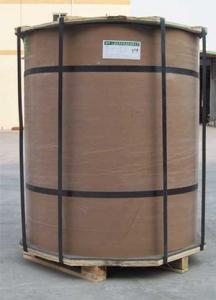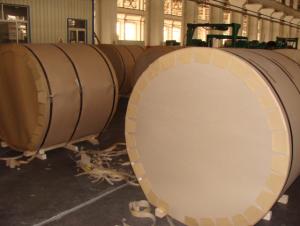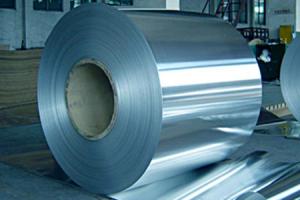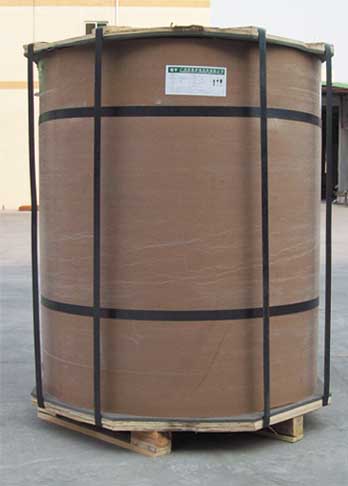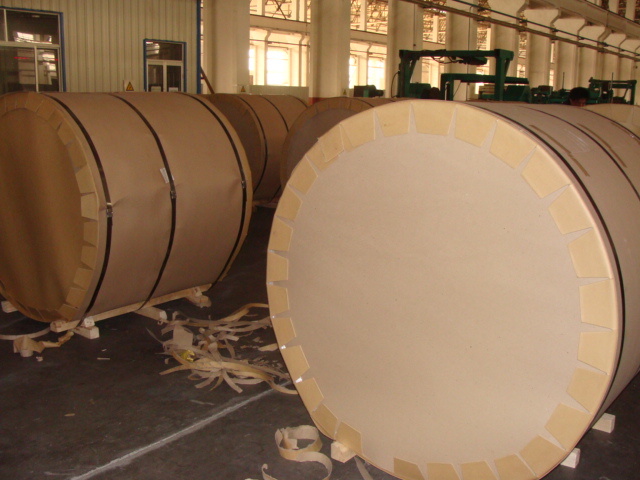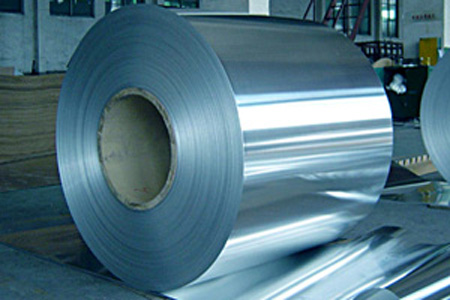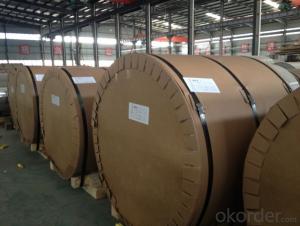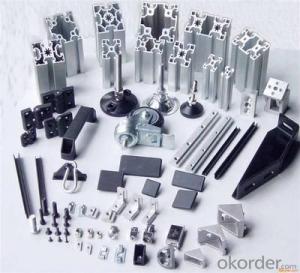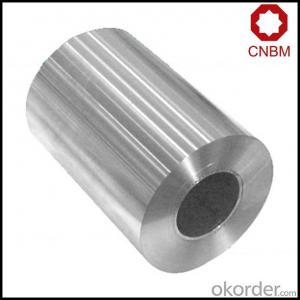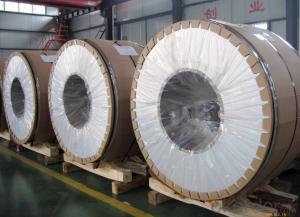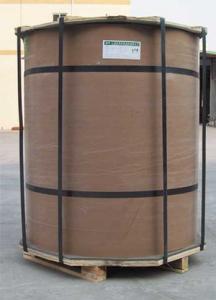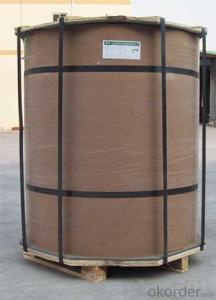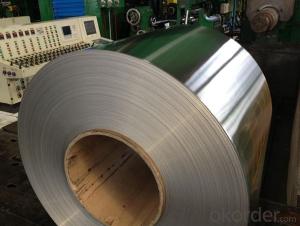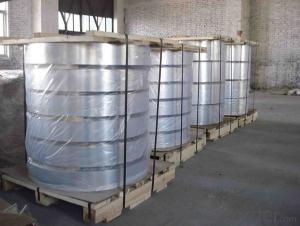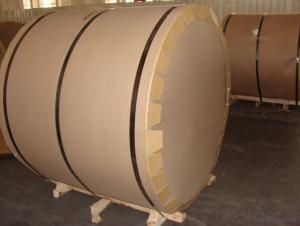Aluminum Coil for Sale - Mill Finished 5xxx Series
- Loading Port:
- China Main Port
- Payment Terms:
- TT or LC
- Min Order Qty:
- 8 g/ft
- Supply Capability:
- 10000 g/ft/month
OKorder Service Pledge
OKorder Financial Service
You Might Also Like
1.Structure of Aluminum Coils Mill Finished 5XXX Description
Aluminum Coils Mill Finished 5XXX has great ductility, heat conductivity, anti-corrosion and moisture resistance properties.
Aluminum Coils Mill Finished 5XXX is widely used for electronics, instruments, lighting decoration, packing industry, house decoration, curtain wall, honeycomb-core panel, sandwich panel, aluminum composite panel and aluminum composite pipes.
2.Main Features of the Aluminum Coils Mill Finished 5XXX
• Superior quality of raw material
• Reasonable and stable chemical composition
• Accurate tolerance
• Goode mechanical property
3.Aluminum Coils Mill Finished 5XXX Images
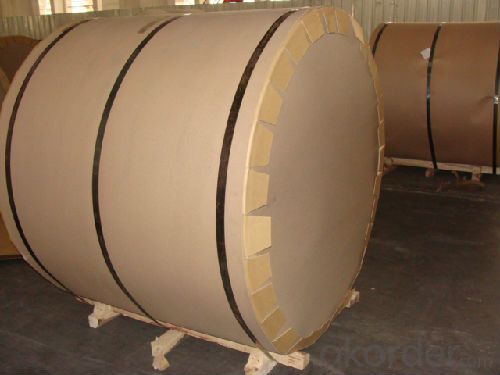
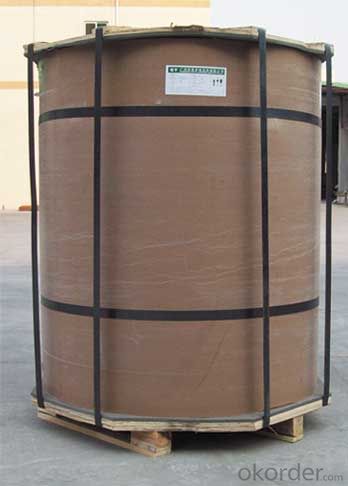
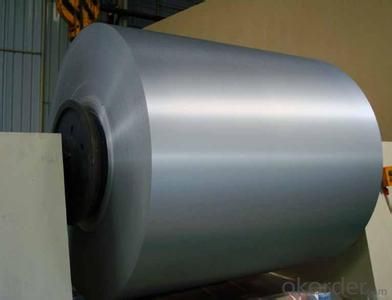
4.Aluminum Coils Mill Finished 5XXX Specification
| Alloy | AA5xxx (AA5052,AA5083,AA5754 etc) |
| Temper | H14,H16,H18,H22,H24,H26,H32,O/F |
| Thickness | 0.2mm--100mm |
| Width | 30mm--1700mm |
| Standard | GB/T 3880-2006 |
5. FAQ of Aluminum Coils Mill Finished 5XXX
A.How to guarantee the quality?
Customers are welcome to our mill to visit and check the products. Besides, we can arrange a third party to test Aluminum Coils Mill Finished 5XXX products.
B.What is the MOQ?
The MOQ for each size is 8 tons.
- Q: Aluminum extrusions are bars made with hollow cavities that allow each to be joined easily, using special connectors. The primary difficulty when painting aluminum extrusions centers on the fact that they are nonporous and durable. Each of these traits creates a complication of its own.
- Your question supposes that you need to Paint the Aluminum Extrusion. The more common thing to do is to Anodize the extrusion. This process coats all surfaces with a hard durable coating. There are several colors available. Actually It's common to use Urethane's to paint Aluminum and the primer isn't simply made for metal, but is specifically for Aluminum. A lot of Airplanes are coated every day in this manner. Methods for coating the insides of tubing have been used for a very long time. You basically fill the tube with primer or coating then drain the excess out (dip method) and difficult shapes can be powder coated or electro static coated. Extrusions can be roller coated after cleaning, vinyls work very well with out priming. Think Toothpaste tubes.
- Q: Can aluminum coils be used in the production of heat shields?
- Yes, aluminum coils can be used in the production of heat shields. Aluminum is a popular choice for heat shields due to its excellent thermal conductivity, lightweight nature, and high reflectivity of radiant heat. Heat shields are typically designed to protect sensitive components or structures from excessive heat generated by engines, exhaust systems, or other sources. Aluminum coils can be formed into various shapes and sizes to create effective heat shields that can dissipate heat and prevent its transfer to the surrounding areas. Additionally, aluminum is corrosion-resistant, making it suitable for applications where heat shields may be exposed to harsh environments or chemicals. Overall, aluminum coils are a suitable material for the production of heat shields due to their thermal properties, versatility, and durability.
- Q: What is the shear strength of aluminum coils?
- The shear strength of aluminum coils varies depending on the specific alloy and temper. However, on average, aluminum coils have a shear strength ranging from 110 MPa to 190 MPa.
- Q: Are aluminum coils suitable for manufacturing cookware?
- Yes, aluminum coils are suitable for manufacturing cookware. Aluminum is a popular choice for cookware due to its excellent heat conductivity, which allows for even heating and efficient cooking. It also has a lightweight and durable nature, making it easy to handle and long-lasting. Additionally, aluminum is resistant to rust and corrosion, making it an ideal material for cookware that is frequently exposed to water and heat. However, it is important to note that uncoated aluminum cookware may react with certain acidic or alkaline foods, leading to a metallic taste. To overcome this, many aluminum cookware manufacturers use non-stick coatings or anodized finishes to prevent food reactions and improve the durability of the cookware. Overall, aluminum coils are a suitable material for manufacturing cookware, but it is essential to consider the specific requirements and coatings needed for different types of cookware to ensure safety and optimal performance.
- Q: Can aluminum coils be used in automotive suspension systems?
- Yes, aluminum coils can be used in automotive suspension systems. Aluminum is a lightweight and durable material that offers several advantages for suspension components. It has a high strength-to-weight ratio, which means that it can handle heavy loads without adding unnecessary weight to the vehicle. This can result in improved fuel efficiency and overall performance. Additionally, aluminum is resistant to corrosion, which is especially important for automotive suspension systems that are exposed to harsh weather conditions and road debris. By using aluminum coils, manufacturers can ensure that the suspension components will last longer and require less maintenance. Furthermore, aluminum coils have the ability to absorb and dissipate heat more efficiently than other materials, such as steel. This can help prevent overheating and reduce the risk of suspension failure, particularly during intense driving conditions or off-road use. However, it is worth noting that the use of aluminum coils in automotive suspension systems may come with certain trade-offs. While aluminum is lighter and more resistant to corrosion, it may not be as strong as steel. Therefore, manufacturers must carefully design and engineer the suspension system to ensure it can withstand the necessary loads and provide adequate support and stability for the vehicle. In summary, aluminum coils can indeed be used in automotive suspension systems, offering benefits such as lightweight construction, corrosion resistance, and efficient heat dissipation. However, it is crucial for manufacturers to consider the specific requirements and trade-offs associated with using aluminum in suspension components to ensure optimal performance and safety.
- Q: How are aluminum coils used in electrical applications?
- Aluminum coils are extensively used in electrical applications due to their excellent conductivity and lightweight properties. They are primarily used in transformers, motors, inductors, and generators, where their high electrical conductivity efficiently transmits and distributes electric currents. Additionally, their lightweight nature allows for easy installation and reduces the overall weight of electrical equipment.
- Q: What are some common applications for aluminum coils?
- Due to their exceptional qualities and versatility, aluminum coils find widespread use in various industries. They are particularly utilized in: 1. Construction: The construction industry extensively employs aluminum coils for roofing, cladding, and insulation purposes. Their lightweight nature makes them ideal for reducing overall structure weight and providing excellent corrosion resistance. 2. Transportation: The automotive and aerospace industries widely utilize aluminum coils. In the automotive sector, they are employed in the manufacturing of heat exchangers, radiators, and condensers, as well as lightweight body panels, improving fuel efficiency. In the aerospace industry, aluminum coils are used to manufacture aircraft parts with a high strength-to-weight ratio, such as wings, fuselages, and engine components. 3. Electrical and Electronics: The electrical and electronics industry employs aluminum coils in various applications. They are commonly used in the production of transformers, motors, and generators due to their excellent conductivity and lightweight nature. Aluminum coils also find use in electrical cable manufacturing, as they offer good electrical conductivity and resistance to corrosion. 4. Packaging: The packaging industry extensively uses aluminum coils due to their excellent barrier properties. They are commonly employed for packaging food and beverages, pharmaceuticals, and other consumer products. Aluminum coils provide an impermeable barrier against moisture, oxygen, and light, ensuring the preservation and protection of packaged goods. 5. Heating, Ventilation, and Air Conditioning (HVAC): Aluminum coils are widely integrated into HVAC systems for their excellent heat transfer properties. They are commonly found in air conditioning systems, heat pumps, and refrigeration units. Aluminum coils facilitate efficient heat exchange, ensuring effective cooling and heating processes. In conclusion, aluminum coils are widely employed in the construction, transportation, electrical and electronics, packaging, and HVAC industries. Their lightweight nature, corrosion resistance, excellent conductivity, and heat transfer properties make them highly versatile and valuable in these sectors.
- Q: How are aluminum coils coated for corrosion resistance?
- Aluminum coils are coated for corrosion resistance through a process called coil coating. Coil coating involves the application of a protective coating onto the aluminum surface to prevent it from corrosion caused by exposure to the environment. The first step in the process is the cleaning and pre-treatment of the aluminum coil. This is done to ensure that the surface is free from any contaminants, such as grease, dirt, or oxidation. The coil is typically cleaned using chemical cleaning agents and then rinsed to remove any residue. After cleaning, the coil is coated with a primer. The primer acts as a bonding agent between the aluminum surface and the subsequent coating layers. It enhances the adhesion of the topcoat and provides an additional layer of protection against corrosion. Once the primer is applied, the coil is then coated with a topcoat. The topcoat is usually a polymer-based paint that provides the desired color and appearance to the aluminum surface. It also acts as a barrier against moisture, UV radiation, and other environmental factors that can cause corrosion. The coating process can be done using various techniques, such as roll coating, spray coating, or coil painting. Each technique has its advantages and is chosen based on factors like cost, production speed, and the desired coating properties. In addition to the primer and topcoat, some aluminum coils may also receive a clear protective coating. This additional layer enhances the durability and longevity of the coated surface, providing an extra level of protection against corrosion. Overall, the coating of aluminum coils for corrosion resistance is a crucial step in ensuring the longevity and performance of the products made from these coils. The specific coating process and materials used may vary depending on the application and desired performance requirements.
- Q: Can aluminum coils be anodized for enhanced durability?
- Indeed, it is possible to anodize aluminum coils in order to enhance their durability. Anodization involves the creation of a layer of aluminum oxide on the surface of the aluminum, resulting in increased resistance to corrosion, wear, and scratches. This layer also offers added protection against UV rays and harsh environmental conditions. By subjecting aluminum coils to anodization, they become more resilient and capable of enduring extended use in a variety of industries, including construction, automotive, and electronics. Moreover, anodized aluminum coils can be further enhanced with additional coatings or finishes to improve their appearance and provide additional protection. Overall, anodizing aluminum coils is a widely employed and efficacious technique for boosting their durability and extending their lifespan.
- Q: Are aluminum coils susceptible to warping or bending?
- Yes, aluminum coils are susceptible to warping or bending due to their relatively low strength and flexibility.
Send your message to us
Aluminum Coil for Sale - Mill Finished 5xxx Series
- Loading Port:
- China Main Port
- Payment Terms:
- TT or LC
- Min Order Qty:
- 8 g/ft
- Supply Capability:
- 10000 g/ft/month
OKorder Service Pledge
OKorder Financial Service
Similar products
Hot products
Hot Searches
Related keywords
